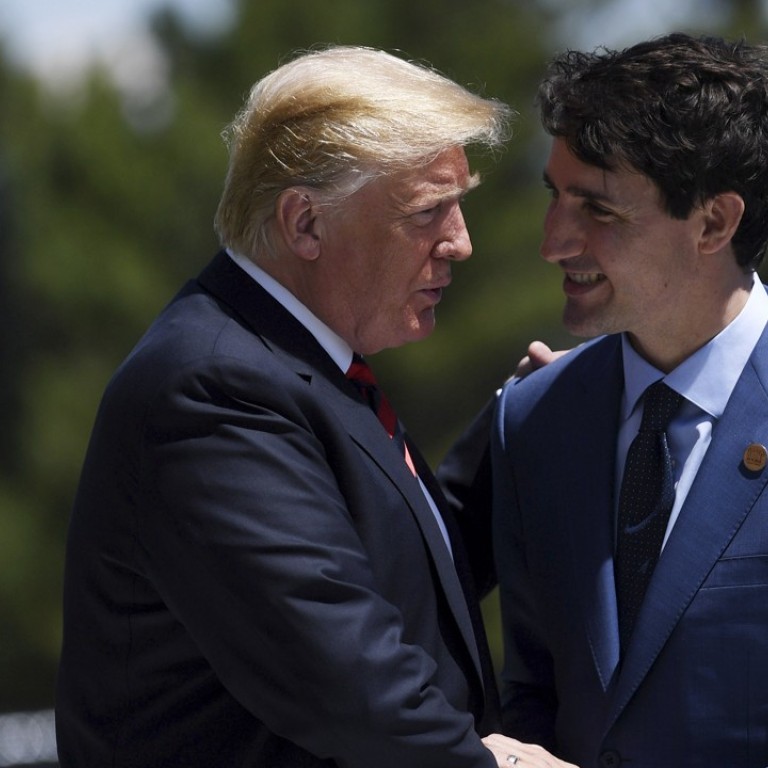
World leaders must stand firm on trade after ‘poison pill’ pact
If the latest deal between the US, Canada and Mexico is all about isolating China, the White House is risking enormous damage to the global economy
North Americans can collectively heave a sigh of relief with Canada, Mexico and the United States having reached a new trade pact to replace an old one. But halfway around the world, Beijing is alarmed, and it is not even mentioned in the trilateral deal, not by name anyway. Buried deep in the fine print is Article 32.10 that gives Washington virtual veto power over any bilateral deal Canada or Mexico may hope to reach with “a non-market country”. Everyone agrees that means China and US Commerce Secretary Wilbur Ross has confirmed it is a “poison pill” that may be used in other deals.
The United States-Mexico-Canada Agreement, subject to ratification, is expected to replace the North American Free Trade Agreement. Nafta has underpinned the trading bloc for a quarter of a century, but was denounced by US President Donald Trump as “the worst trade deal in the history of the country”. He is hailing the new agreement as a major victory under his “America first” banner.
Virtually all the bones of contention were well debated among the three countries, but the “non-market” economy clause was a big surprise. All indications are that the provision was sprung at the last minute by the US negotiating team. But, for Mexico and Canada, it was more important to protect their domestic markets than defend their freedom of trade with China. The article allows cancellation of the pact with any one of the three countries if it reaches a free-trade agreement with a non-market economy. More onerously, any one of the three countries must give the others 90-day advance notice if it intends to enter into negotiations with a non-market economy.
In the midst of a trade war that may well come to define his tumultuous presidency, Trump is happy to exploit an entirely unrelated deal as another weapon to isolate and put pressure on China. It is unlikely to be a one-off and is expected to feature in future trade talks such as those with Japan, India and the European Union. Washington has calculated it may eventually reach separate deals with its allies, after which China will be shut out.
China is not entirely helpless. It has bilateral free-trade deals with Australia, New Zealand, Iceland, South Korea, Singapore and the 10-member Association of Southeast Asian Nations. Together, they account for about a quarter of China’s total trade. Even without a free-trade pact, China is still Canada’s second-largest trading partner.
China and the US could slug it out for a long time. But if it’s all about isolating and containing the world’s second-largest economy, the Trump administration is risking enormous collateral damage to the world economy, global free trade and a stable international system. More enlightened leaders must realise that and not budge under pressure from a US administration that rejects multilateralism.

